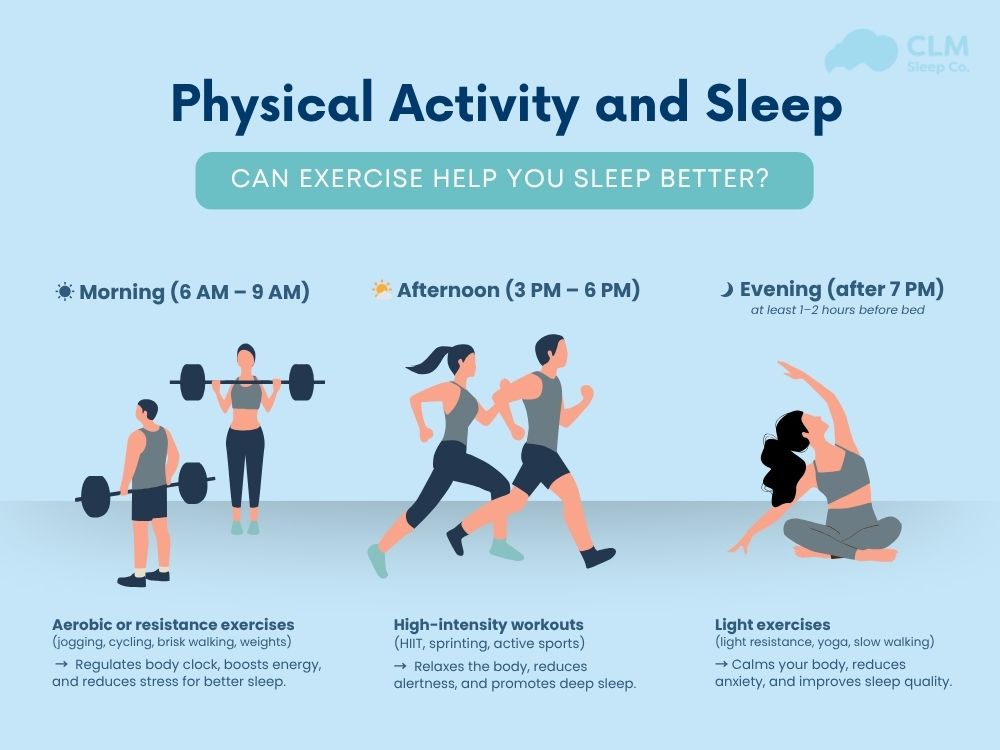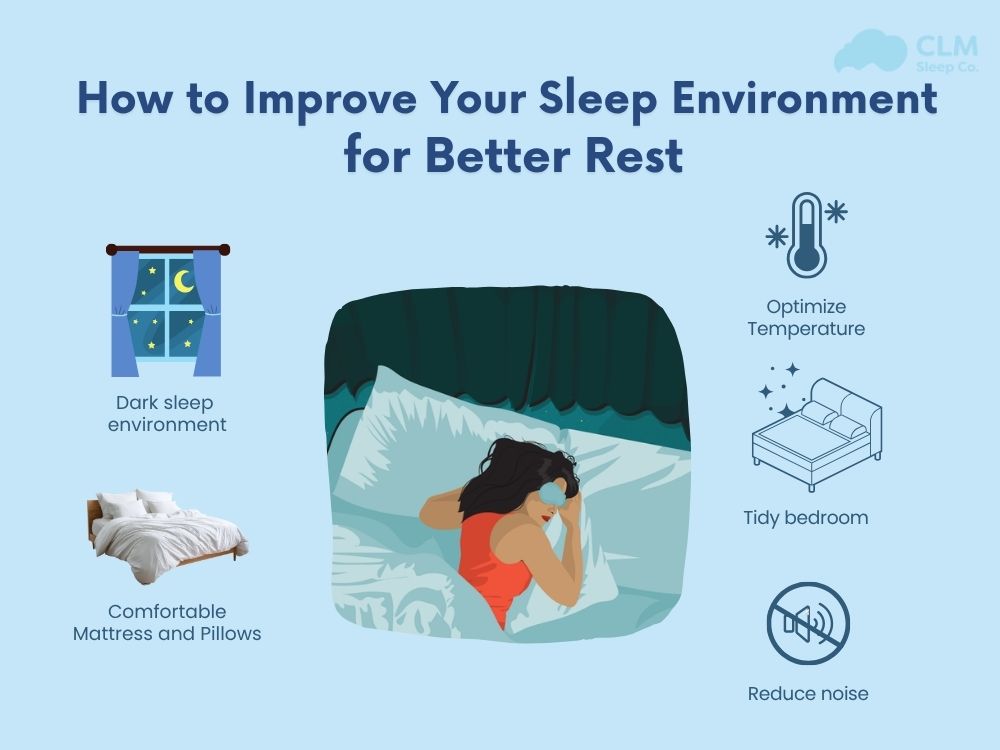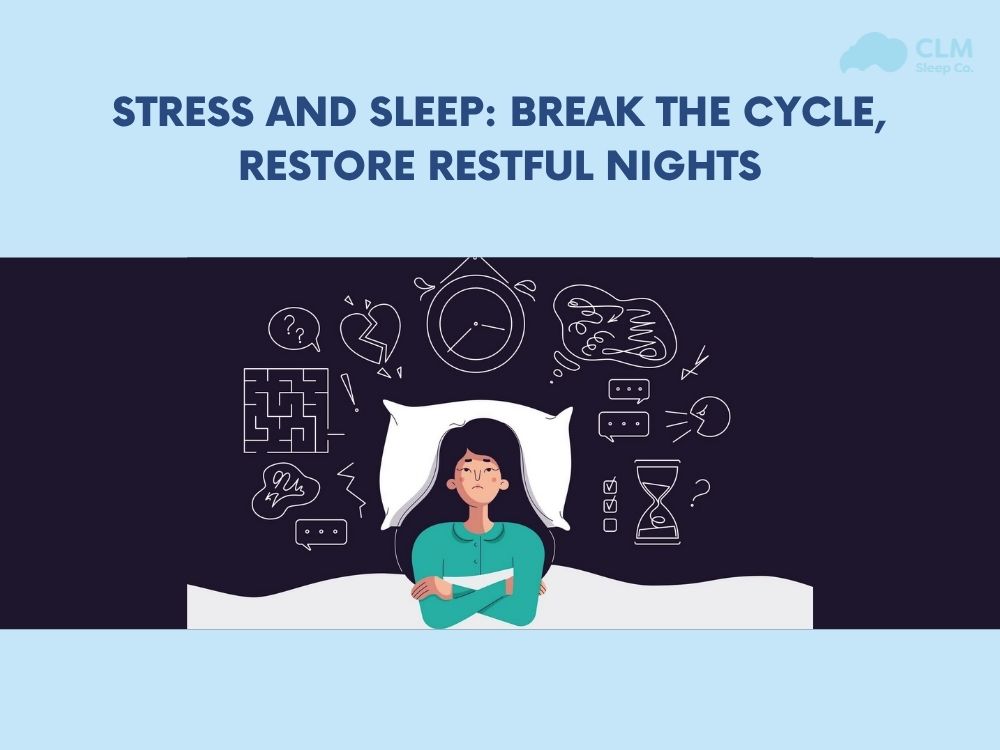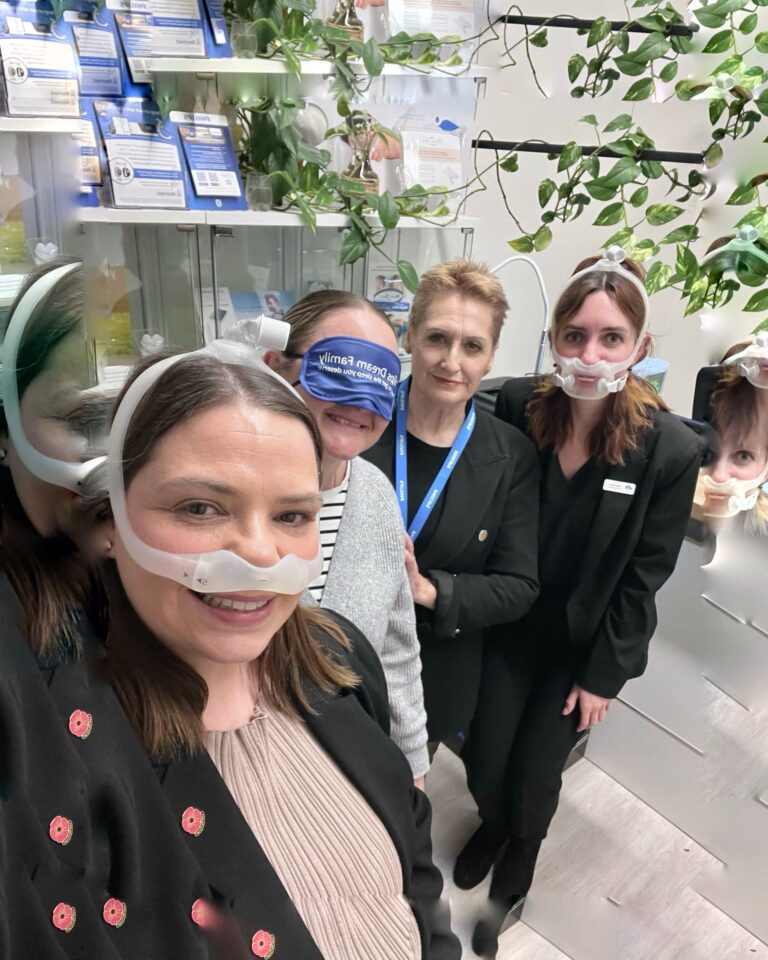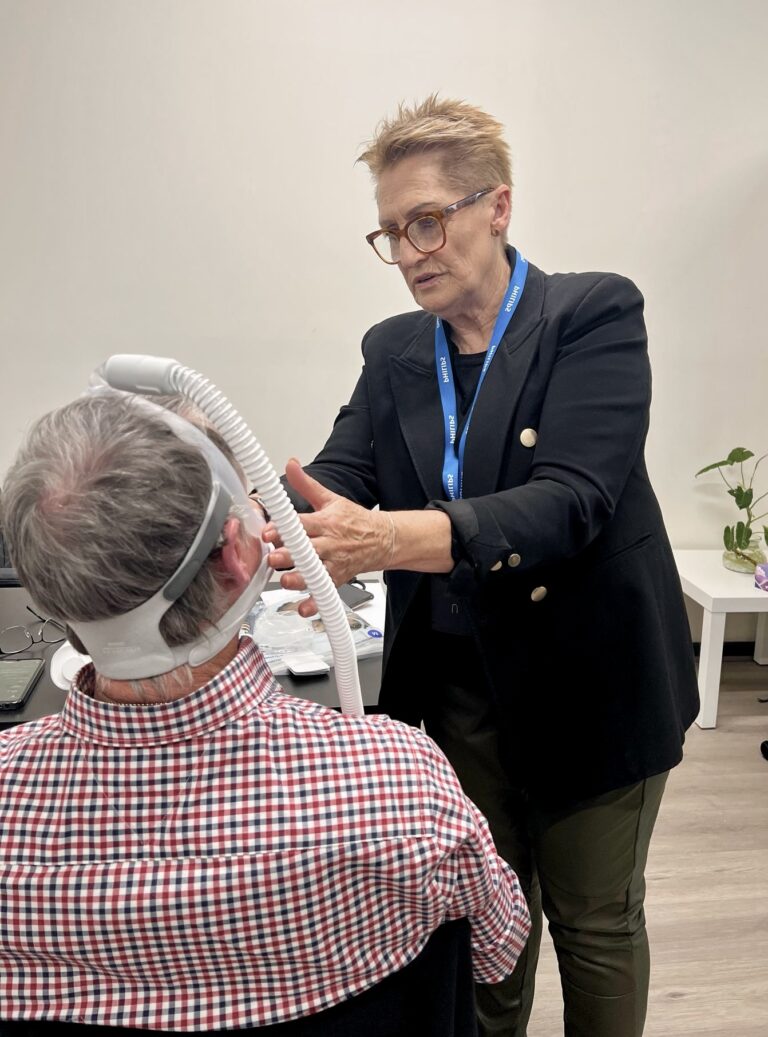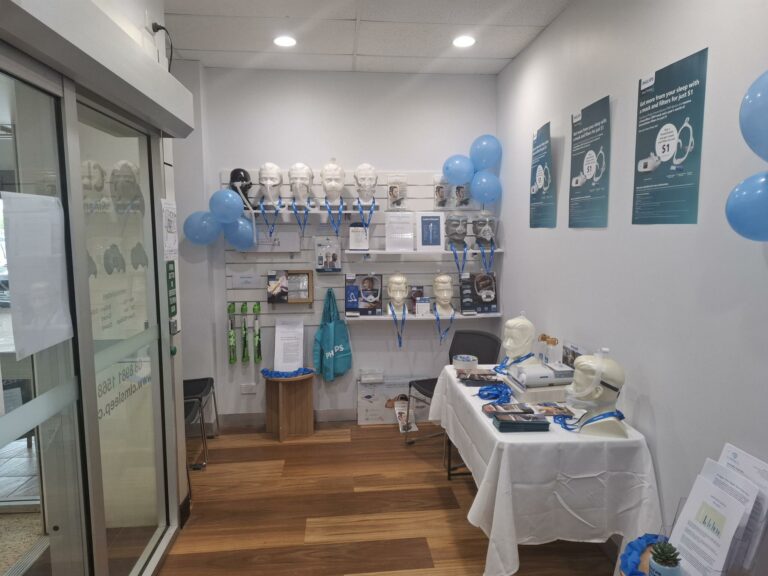Sleep apnea is a widespread sleep disorder in which a person’s breathing repeatedly interrupts during sleep. These interruptions can lead to snoring and symptoms like daytime fatigue, morning headaches, irritability, and trouble focusing.
Sleep apnea also raises the risk of serious health issues, such as heart attacks and strokes. Given its effects, many people wonder about the underlying sleep apnea causes and whether genetics might be a contributing factor. So, sleep apnea is it hereditary? Let’s find out in this article of CLM Sleep.
The main cause of sleep apnea
Sleep apnea is a common sleep disorder influenced by several factors:
- Health: Obesity is a major risk factor, as extra weight can narrow the airway. Conditions like diabetes, high blood pressure, and respiratory issues (e.g. asthma, COPD) also raise the risk of sleep apnea.
- Lifestyle factors: Smoking and alcohol can relax throat muscles, obstructing the airway. Poor sleep habits and high caffeine intake may further disrupt breathing during sleep.
- Anatomy: A narrow throat, large tonsils, or nasal issues like congestion can restrict airflow, increasing the risk of sleep apnea.
- Genetics: Family history and genetic traits, such as facial structure and muscle tone, contribute to a higher risk of sleep apnea.
Recognizing these sleep apnea causes is essential for effective prevention and management. Consult a healthcare provider if you suspect this type of sleep disorder.
Why is sleep apnea hereditary?
There is currently no direct evidence linking genetic factors to central sleep apnea (CSA). However, some hereditary conditions, such as heart failure, may increase the risk of developing CSA.
In contrast, certain inherited anatomical features can increase the risk of obstructive sleep apnea (OSA). OSA occurs when the upper airway is blocked during sleep. Studies indicate that the risk of OSA is higher if a family member has the condition, with about 40% of the differences in the apnea-hypopnea index (AHI) attributed to genetic factors.
Genetic Factors Linked to OSA Risk:
- Body Fat Distribution: Given that obesity is a major risk factor for obstructive sleep apnea, this connection indirectly contributes to the hereditary nature of the disorder.
- Facial Anatomy: Is sleep apnea genetic? Genetics plays a role in the shape of the skull, nose, and jaw, which can determine airway size and the likelihood of obstruction.
- Breathing Control: Sleep apnea is it hereditary? Genetic factors may impact the muscles and neural signals involved in respiration, affecting OSA risk.
- Circadian Rhythms: Genes influence sleep schedules and sleep quality, which are associated with OSA risk.
Despite over 20 years of research into the genetics of sleep apnea, little is known about the specific genes involved in sleep-disordered breathing. Although more studies are needed, current evidence points to several genes potentially linked to intermittent hypoxia or obstructive sleep apnea (OSA):
- Angiopoietin-2 gene (ANGPT2)
- Tumor necrosis factor-α (TNFα), −308G/A polymorphism
- Prostaglandin E2 receptor EP3 subtype (PTGER3)
- Lysophosphatidic acid receptor 1 (LPAR1)
- G-protein receptor gene (GPR83)
- β-arrestin 1 gene (ARRB1)
- Dopamine receptor D1 gene (DRD1)
- Serotonin receptor gene (HTR2A)
Further research is needed to confirm these findings, but genetic factors may help explain why OSA varies among different racial groups. Genetics would also speak to the connection between OSA and many other comorbidities. There are already preliminary research findings of common genes for both OSA and elevated triglycerides.
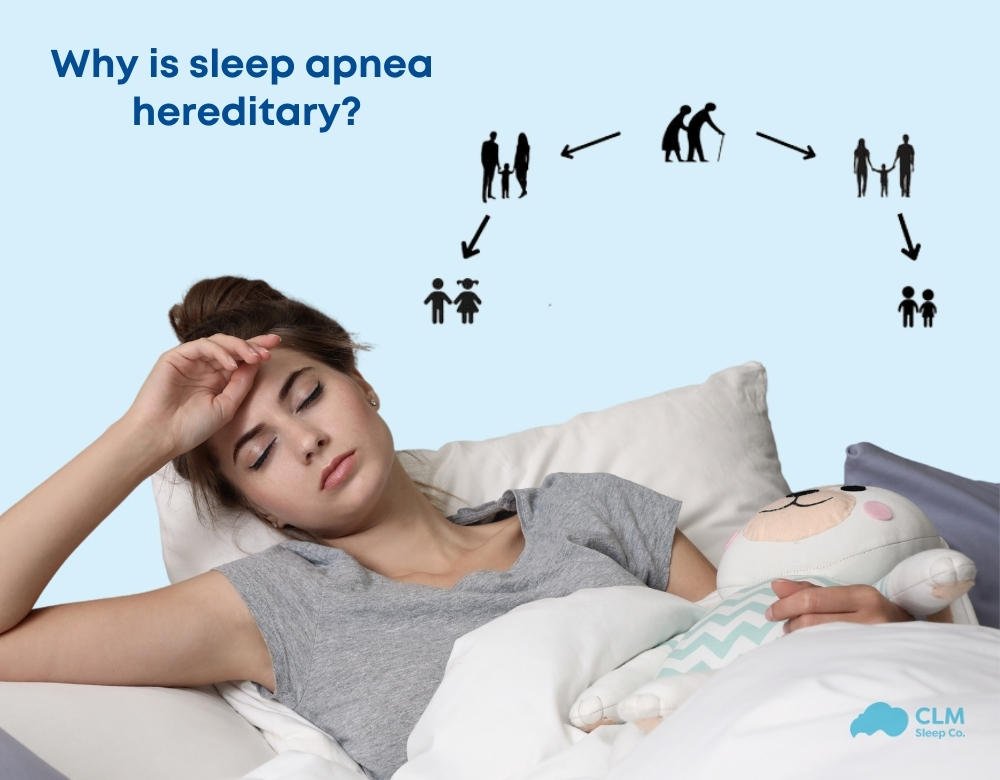
Symptoms of Hereditary Sleep Apnea
Often the clinical presentation of familial sleep apnea shares signs with other forms of sleep apnea. However, it can be more severe, or be seen earlier because of genetic underpinning. Here are some hereditary sleep apnea symptoms:
- Loud, Persistent Snoring: A classic sign, especially when there is a family history of obstructive sleep apnea (OSA), linked with inherited physical features – such as a narrow airway.
- Pauses in Breathing While Asleep: The obvious periods of not breathing. They are usually followed by a snort or gasp and are more common in hereditary cases.
- Excessive Daytime Sleepiness: Chronic fatigue, even after a full night’s sleep, due to interrupted breathing that disrupts normal sleep cycles.
- Morning Headaches: Frequent headaches upon waking, caused by reduced oxygen levels during sleep.
- Difficulty Concentrating and Memory Issues: Poor focus, forgetfulness, and cognitive problems, often resulting from sleep fragmentation.
- Mood Changes and Irritability: Increased anxiety, irritability, and even depression due to chronic sleep deprivation.
- Restless Sleep and Insomnia: Frequent tossing, turning, or trouble falling and staying asleep, exacerbated by repeated breathing interruptions.
- Night Sweats: Waking up sweaty, as the body struggles to maintain oxygen levels during apnea episodes.
- Unexplained Weight Gain: Difficulty losing weight or sudden weight gain, potentially linked to both disrupted metabolism and genetic factors.
- High Blood Pressure: Hypertension, commonly associated with hereditary sleep apnea, as a result of repeated oxygen drops and strain on the cardiovascular system.
If you experience these symptoms and have a family history of sleep apnea, it’s important to consult a healthcare provider for assessment and possible sleep testing.
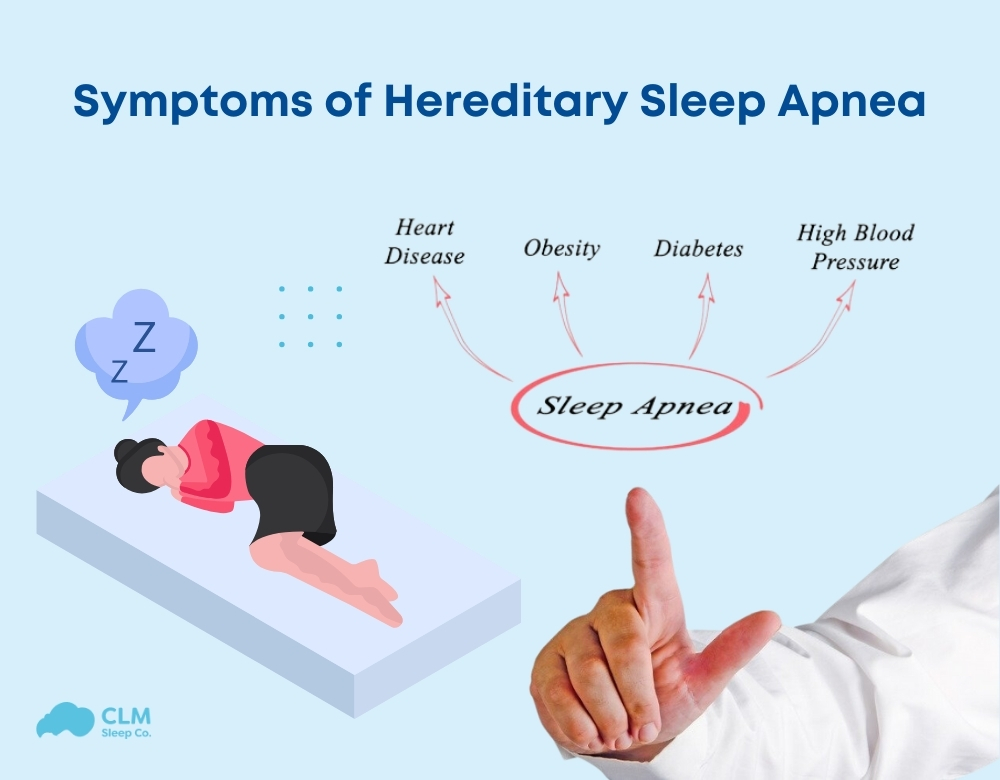
Testing and Diagnosis in Australia
Seek diagnosis as soon as possible if you suspect that you have sleep apnea. In Australia, sleep studies are the standard technique for diagnosis. Complete sleep studies, for example, those available from CLM, will enable the identification of sleep disorders with greater clarity, including obstructive sleep apnea (OSA) and central sleep apnea (CSA). It uses specific sensors to monitor a patient’s breathing patterns, oxygen levels, heart rate, and brain activity throughout the entire night.
CLM provides sleep apnea testing services in Australia, with in-lab sleep studies and home sleep tests. The in-lab studies give detailed results under a controlled environment and are more appropriate for difficult cases. Sleep apnea test at home, on the other hand, is an easy option and quite a comfortable choice for the patient.
Early diagnosis makes it possible to start treatment in time, thus lowering the risks of associated problems like heart disease or hypertension. Contact CLM today and schedule your diagnosis and treatment services.
Treatment Options for Sleep Apnea
Proper treatment of sleep apnea can drastically improve sleep and health. Here are the treatment options available:
- Lifestyle Changes: For mild sleep apnea, lifestyle modifications can be applied. Adherence to keeping a healthy weight, cessation of smoking and alcohol, and side sleeping could all be measures to alleviate symptoms.
- CPAP Therapy: Continuous Positive Airway Pressure is the leading treatment for moderate to severe sleep apnea. This device uses a mask to maintain an open airway in making sure there are no interruptions in the ventilation system, for good quality sleep.
- Other Therapies: Oral appliances and myofunctional therapy are alternative therapies provided for treating patients who cannot undergo CPAP therapy. While oral appliances reposition the jaw to keep the air passage open, myofunctional therapy involves exercises to strengthen throat muscles.
- Surgical Treatment: For severe cases, or in case of unsuccessful treatments with other options, surgery can be performed by removing tissue and/or repositioning the jaw, or implants to open the airway.
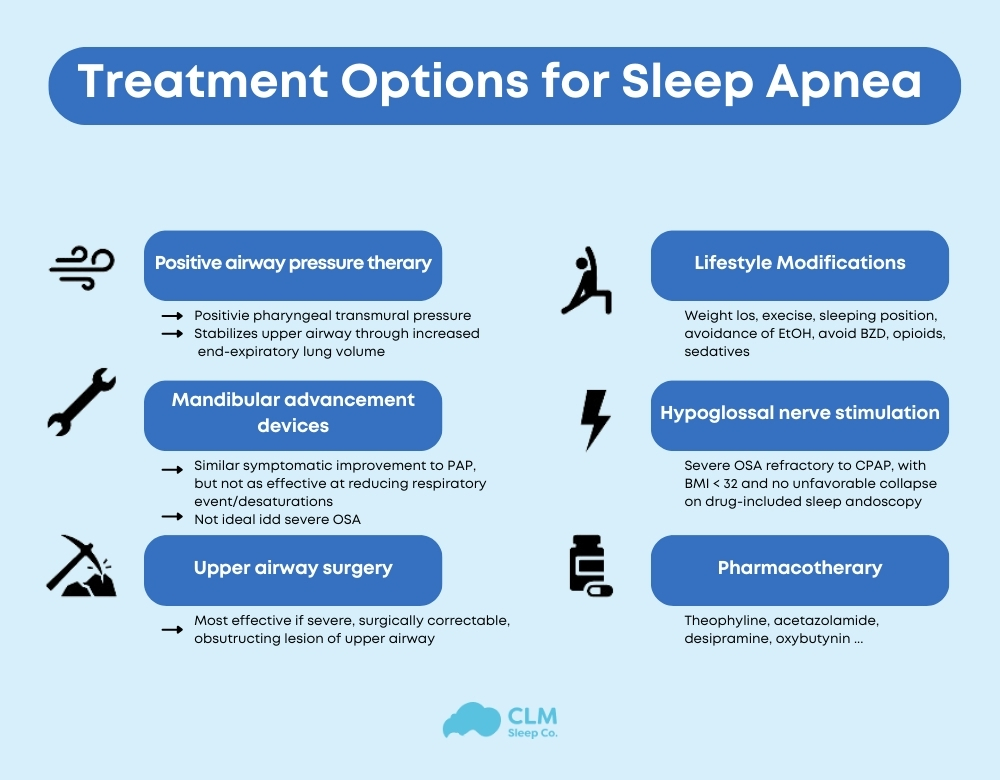
See more: Can Sleep Apnea Cause Weight Gain?
Tips for managing hereditary sleep apnea
Effectively managing hereditary sleep apnea involves lifestyle changes, treatments, and regular monitoring:
- Maintain a Healthy Weight: Obesity increases OSA risk. A balanced diet and exercise can reduce neck fat and help keep airways open.
- Sleep on Your Side: This position helps prevent airway blockage, especially if you have inherited narrow airways.
- Use a CPAP Machine: CPAP therapy provides constant air pressure, preventing airway collapse. Early use is helpful for those with a family history.
- Limit Alcohol and Sedatives: These relax throat muscles, increasing airway obstruction risk. Reducing intake can lessen symptoms.
- Follow a Consistent Sleep Schedule: Keeping a regular sleep routine helps manage your sleep cycle and reduce apnea effects.
- Get Regular Check-ups: Routine medical exams and sleep studies help detect and manage sleep apnea early.
These steps, along with professional guidance, can help control hereditary sleep apnea and improve overall health.
Conclusion of the article
In conclusion, sleep apnea is it hereditary? While sleep apnea isn’t caused directly by specific genes, genetics can play a significant role in increasing your risk, especially if you have inherited traits like a narrow airway or a predisposition to obesity. Family history, combined with other lifestyle and health factors, can make certain individuals more prone to sleep apnea. Understanding your risk factors and seeking a timely diagnosis are crucial steps toward better sleep health.
If you or a loved one are experiencing symptoms of sleep apnea, don’t wait. Visit CPAP Adelaide or shop conveniently at our online store, Cpapdiscount today to explore our range of effective sleep aids from top brands such as ResMed, Fisher & Paykel, Philips,… and get the support you need for a better night’s sleep. Your journey to healthier sleep starts here!


